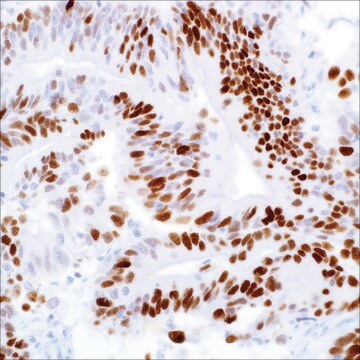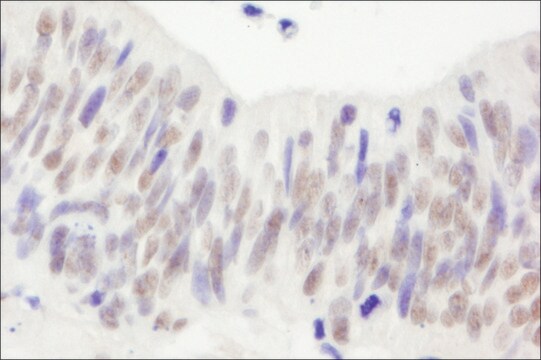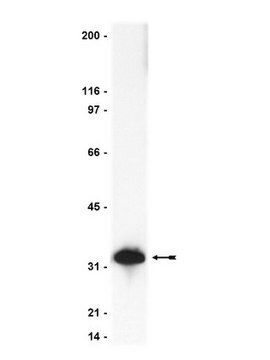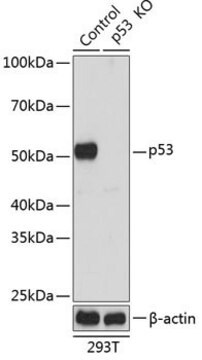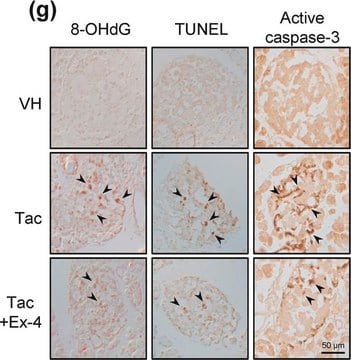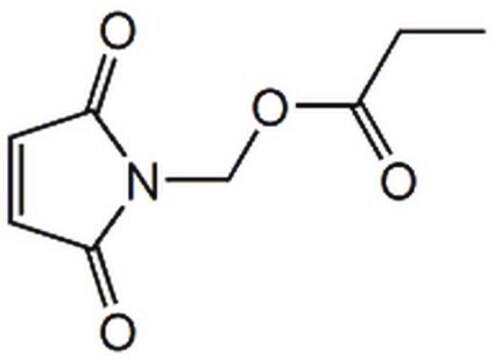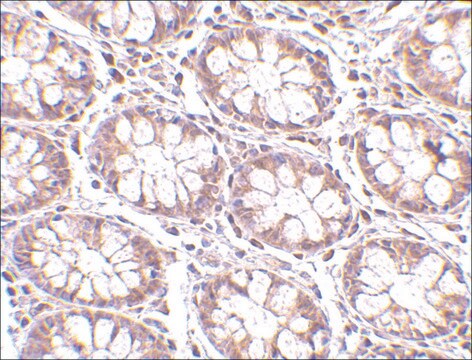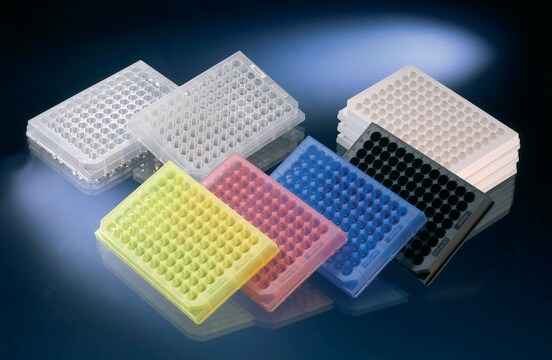PLA0072
Rabbit anti-p53 Antibody, Affinity Purified
Synonyme(s) :
BCC7, LFS1, Li-Fraumeni syndrome, TRP53, Tumor suppressor p53, antigen NY-CO-13, mutant tumor protein 53, p53, p53 tumor suppressor, phosphoprotein p53, transformation-related protein 53, tumor protein 53, tumor supressor p53
About This Item
Produits recommandés
Source biologique
rabbit
Niveau de qualité
Forme d'anticorps
affinity purified immunoglobulin
Type de produit anticorps
primary antibodies
Espèces réactives
human
Technique(s)
ChIP: 4-30 μg
flow cytometry: 1.5 μg
immunohistochemistry: 1:1,000- 1:5,000
immunoprecipitation (IP): 2-5 μg/mg
western blot: 1:2,000-1:10,000
Numéro d'accès
P04637
Conditions d'expédition
wet ice
Température de stockage
2-8°C
Modification post-traductionnelle de la cible
unmodified
Informations sur le gène
rabbit ... p53(7157)
Description générale
Immunogène
Actions biochimiques/physiologiques
Forme physique
Autres remarques
Clause de non-responsabilité
Vous ne trouvez pas le bon produit ?
Essayez notre Outil de sélection de produits.
Code de la classe de stockage
12 - Non Combustible Liquids
Classe de danger pour l'eau (WGK)
nwg
Point d'éclair (°F)
Not applicable
Point d'éclair (°C)
Not applicable
Faites votre choix parmi les versions les plus récentes :
Certificats d'analyse (COA)
It looks like we've run into a problem, but you can still download Certificates of Analysis from our Documents section.
Si vous avez besoin d'assistance, veuillez contacter Service Clients
Déjà en possession de ce produit ?
Retrouvez la documentation relative aux produits que vous avez récemment achetés dans la Bibliothèque de documents.
Notre équipe de scientifiques dispose d'une expérience dans tous les secteurs de la recherche, notamment en sciences de la vie, science des matériaux, synthèse chimique, chromatographie, analyse et dans de nombreux autres domaines..
Contacter notre Service technique